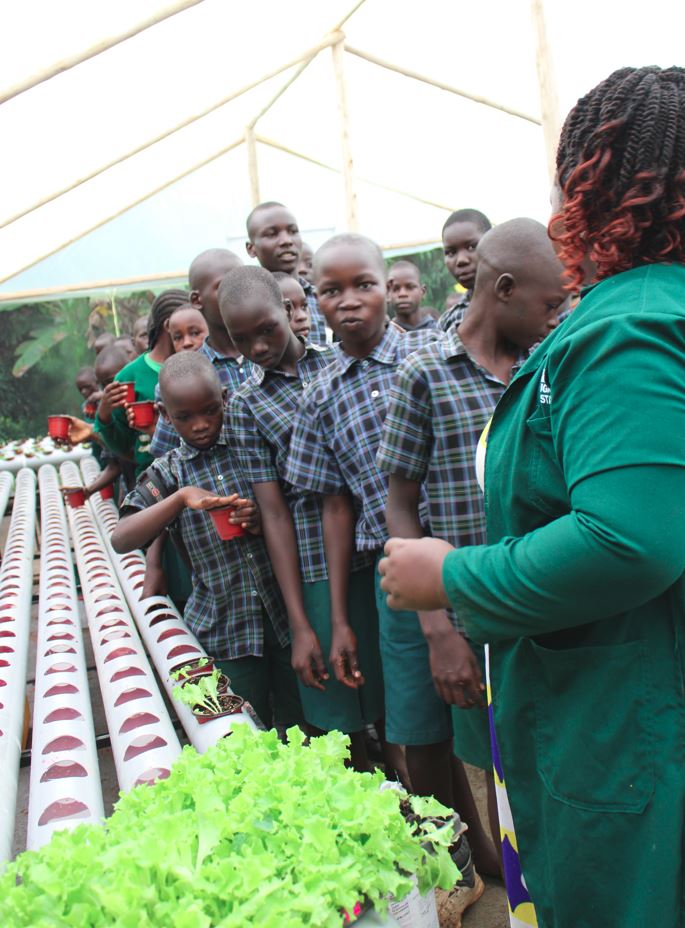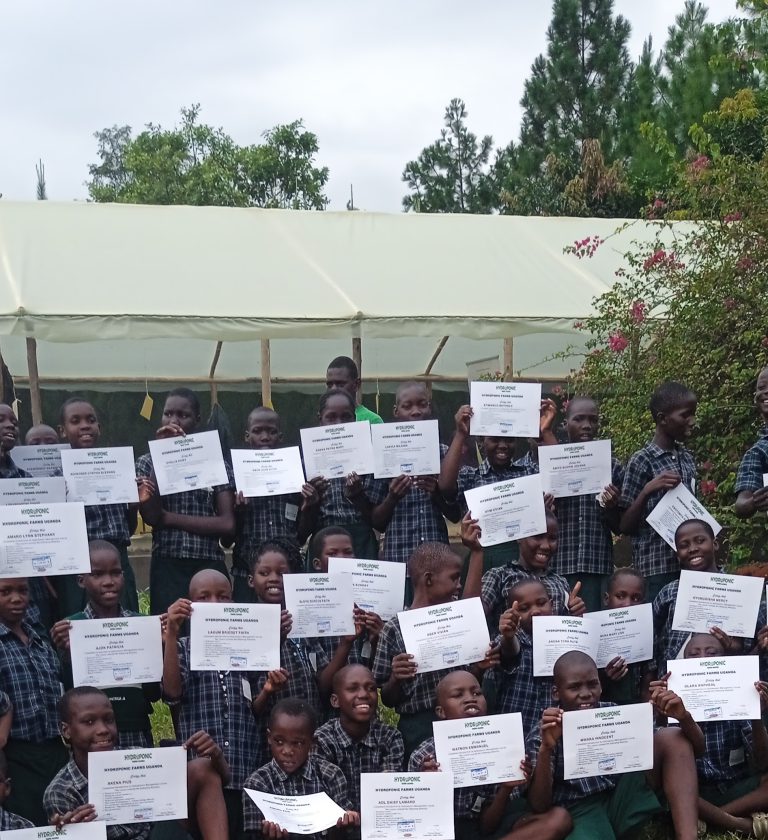Hydroponics in Schools
Empowering Uganda’s future through sustainable farming education and school gardens.
Get StartedOur School Hydroponics Program
At Hydroponic Farms Uganda, we bring innovative hydroponic training and garden installations to schools like Wakadogo School Gulu, Entebbe Army School, and Agha Khan School. Our programs combine hands-on learning, STEM education, and sustainable food production to transform school environments and nourish students.
Hydroponic Training for Pupils
We train students in hydroponic farming techniques, teaching them to grow plants without soil using nutrient-rich water. Our hands-on workshops cover seedling preparation, transplanting, and system maintenance, fostering skills in sustainable agriculture. Schools like Wakadogo School Gulu have seen students engage enthusiastically, learning practical skills that inspire a passion for science and environmental stewardship.
STEM Demo Gardens
Our STEM demo gardens serve as living laboratories for science, technology, engineering, and math education. We install compact hydroponic systems in schools like Entebbe Army School, allowing students to observe plant growth, monitor nutrient levels, and experiment with irrigation techniques./*. These gardens make STEM interactive and engaging, sparking curiosity and innovation.
School Food Gardens
We set up productive hydroponic food gardens to supply fresh vegetables like kale, tomatoes, and lettuce for school meals. At Agha Khan School, our gardens provide nutritious produce year-round, reducing reliance on external food sources. These gardens are low-maintenance, space-efficient, and protected from pests, ensuring consistent harvests even in urban settings.


Impact of School Hydroponics
0
Schools Trained
0
Students Engaged
0
Gardens Installed
0
Meals Improved (%)
Advantages of School Hydroponics
Sustainable Nutrition
Hydroponic gardens provide fresh, nutrient-rich vegetables, improving student diets and concentration. Schools like Wakadogo School Gulu use garden produce to enhance meal programs, reducing malnutrition and supporting academic performance.
Educational Value
Students gain practical skills in agriculture and STEM, preparing them for future careers. At Entebbe Army School, our programs teach critical thinking and problem-solving through hands-on experiments, fostering a love for learning.
Resource Efficiency
Hydroponics uses up to 90% less water than traditional farming, ideal for Uganda’s variable climate. Schools like Agha Khan School benefit from year-round harvests, even during dry seasons, ensuring food security.
Community Engagement
Our programs involve parents and local communities, creating shared ownership. PTAs at schools like Wakadogo School Gulu collaborate on garden maintenance, strengthening community ties and promoting sustainable practices.
Cost Savings
By producing their own food, schools reduce dependency on expensive external suppliers. For example, Agha Khan School saves on meal costs by integrating garden produce, making school feeding programs more sustainable.
Environmental Awareness
Students learn the importance of sustainable practices, fostering environmental stewardship. At Entebbe Army School, hands-on hydroponic training instills lifelong habits for eco-friendly living and conservation.
Feeding Pupils from School Gardens
Our hydroponic food gardens enable schools to produce fresh vegetables for their meal programs, ensuring students receive nutritious, balanced diets. Schools like Wakadogo School Gulu and Agha Khan School harvest kale, tomatoes, and lettuce to supplement lunches, reducing costs and improving health outcomes. By integrating garden produce into school kitchens, we help address malnutrition, enhance concentration, and promote lifelong healthy eating habits. These gardens are designed for high yields in limited spaces, making them perfect for urban schools like Entebbe Army School, where land is scarce.